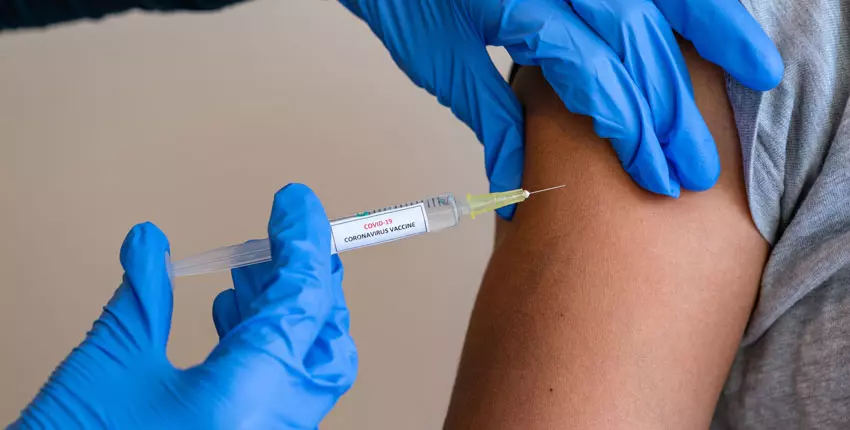
Researchers Uncover Clues to COVID Vaccine-Linked Health Issues
The COVID-19 pandemic has brought about unprecedented challenges to global healthcare systems. While vaccines have been instrumental in curbing the spread of the virus, a growing concern has emerged regarding post-vaccination syndrome (PVS), a rare condition characterized by chronic symptoms after COVID-19 vaccination. Recent findings by Yale researchers have shed light on potential immune patterns linked to PVS, offering hope for diagnosis and treatment. In this blog post, we’ll delve into the study’s results and explore the implications for public health.
What is Post-Vaccination Syndrome (PVS)?
PVS is a condition where individuals experience persistent and debilitating symptoms, often described as “long COVID,” after receiving the COVID-19 vaccine. The symptoms can range from mild to severe and may include fatigue, muscle pain, joint pain, and neurological manifestations such as headaches, memory issues, and mood changes. While PVS is rare, it has raised concerns about the long-term safety of COVID-19 vaccines.
Yale Researchers Identify Potential Immune Patterns
In a recent study published in the journal Science Advances, Yale researchers analyzed blood samples from individuals with PVS and compared them to those without the condition. The team discovered two distinct immune patterns that may be linked to PVS:
- Lower White Blood Cell Levels: Individuals with PVS tended to have lower levels of white blood cells, particularly neutrophils and lymphocytes, which play a crucial role in fighting infections. This finding suggests that the immune system may be impaired in some individuals, making them more susceptible to chronic symptoms.
- Persistent Spike Protein: The researchers also found evidence of persistent spike protein in some individuals with PVS. Spike proteins are a key component of the SARS-CoV-2 virus and are produced by the immune system as a response to vaccination. In healthy individuals, the immune system would typically clear the spike protein quickly. However, in those with PVS, the spike protein may persist, potentially leading to chronic inflammation and symptoms.
Implications for Diagnosis and Treatment
The Yale study’s findings offer hope for diagnosing and treating PVS. By identifying individuals with lower white blood cell levels and persistent spike protein, healthcare providers may be able to target specific therapies to address the underlying immune dysregulation. This could involve strategies such as immunomodulation, which aims to restore balance to the immune system.
The study’s results also underscore the need for further research into vaccine-related health effects. As more people receive COVID-19 vaccines, it’s essential to monitor for potential long-term side effects and develop effective treatment strategies.
What Does this Mean for the General Public?
While PVS is a rare condition, it’s essential for individuals who experience chronic symptoms after vaccination to consult with their healthcare providers. The Yale study’s findings highlight the importance of close monitoring and follow-up care for individuals with PVS.
For the general public, the study’s results emphasize the need for continued vigilance regarding vaccine safety. As new vaccines and boosters are developed, it’s crucial to prioritize research into their long-term effects and potential interactions with the immune system.
Conclusion
The Yale study’s discovery of potential immune patterns linked to PVS marks an important step forward in understanding the complex interactions between COVID-19 vaccines and the human immune system. As researchers continue to explore the causes and mechanisms of PVS, we can expect to see advancements in diagnosis and treatment. Ultimately, this research underscores the importance of continued investment in vaccine safety and the need for public health officials to prioritize the well-being of individuals who receive COVID-19 vaccines.
Source:






